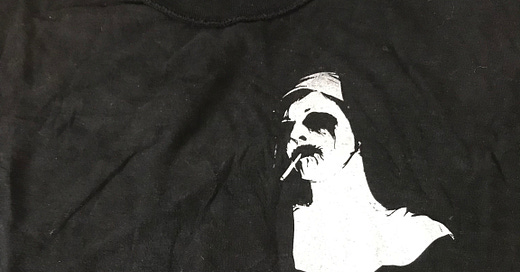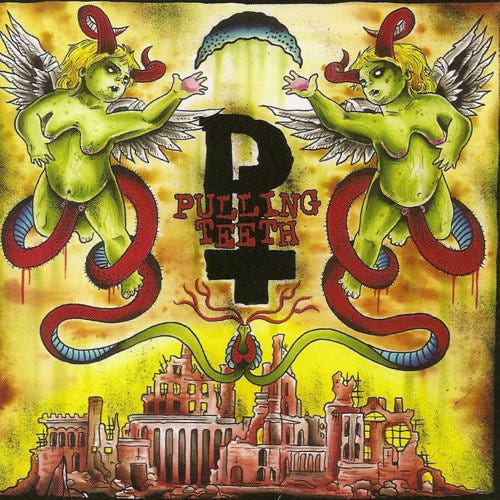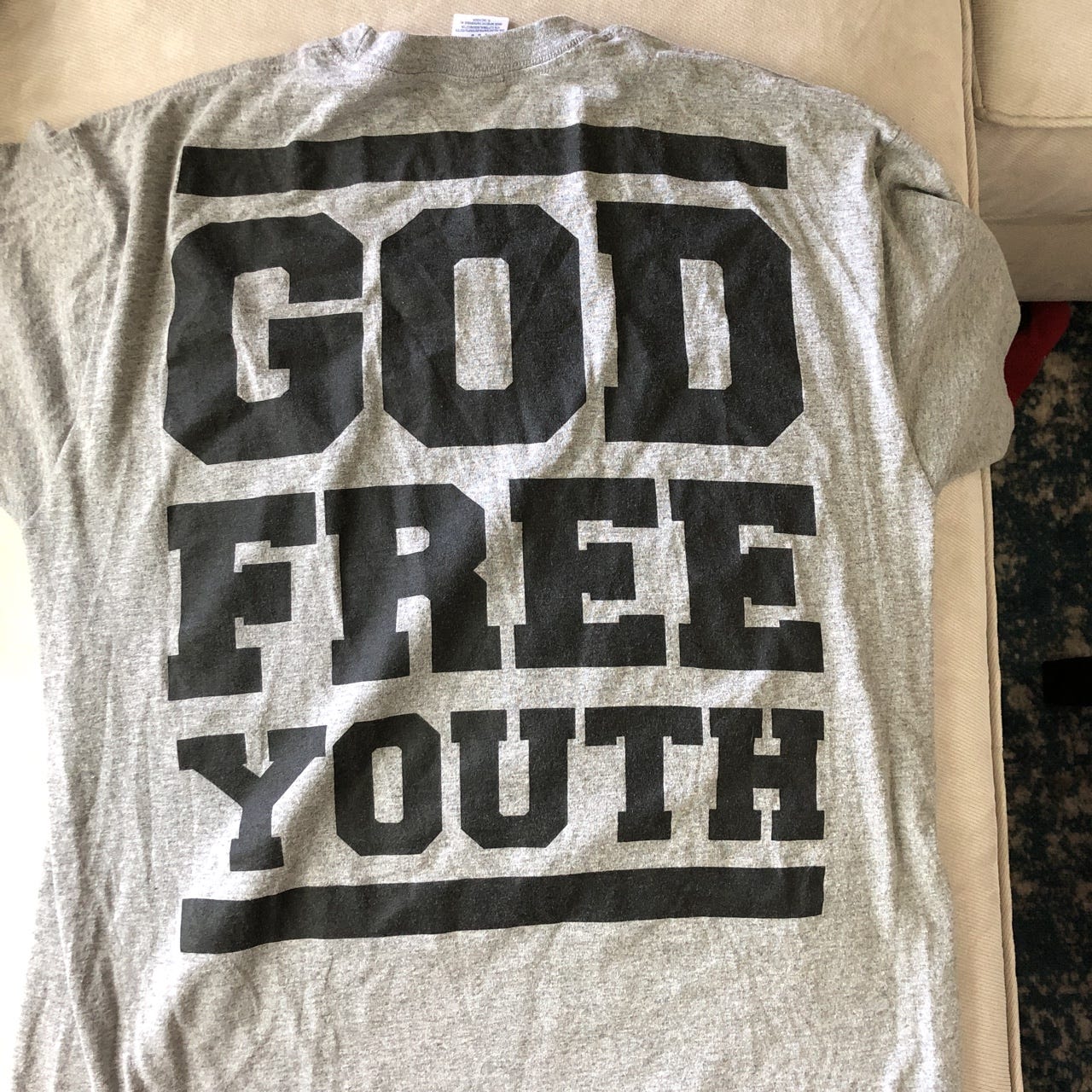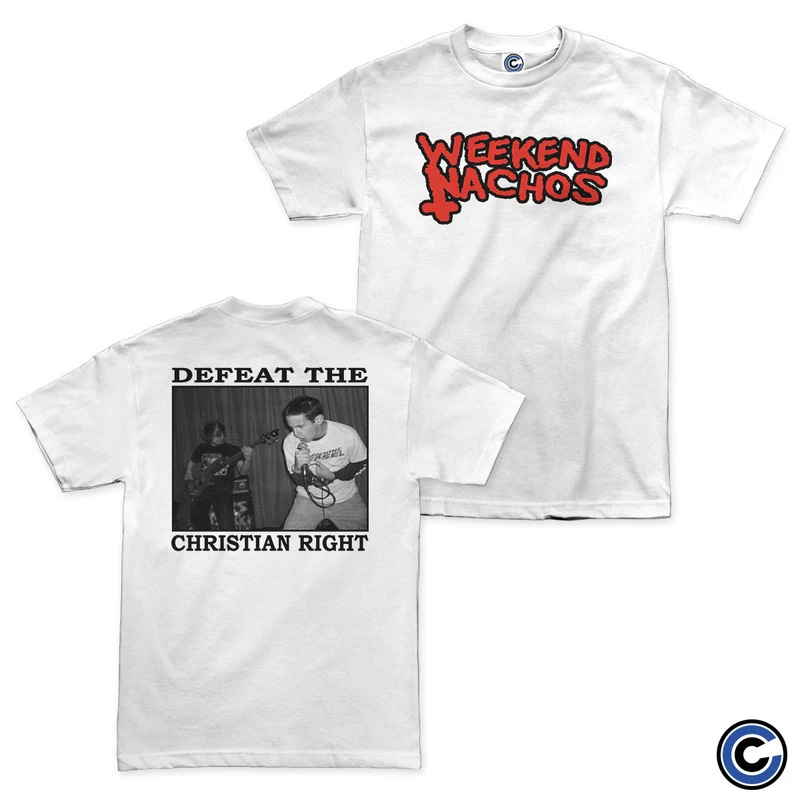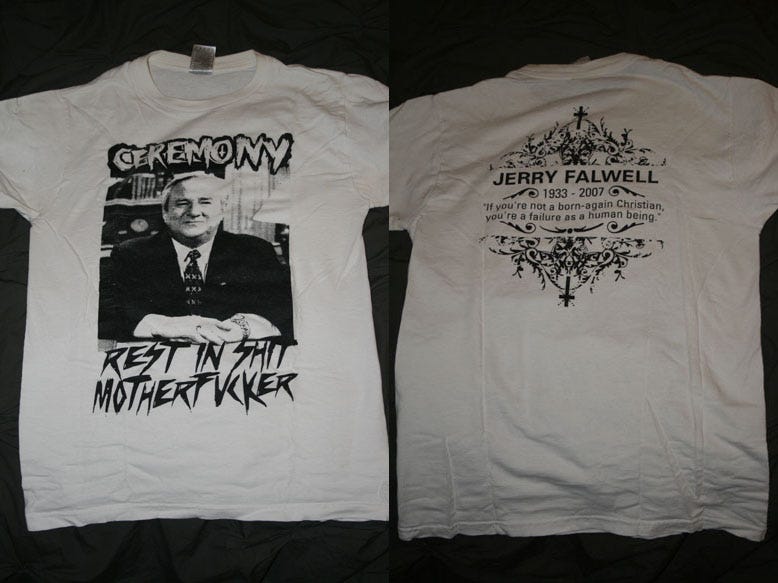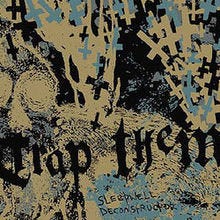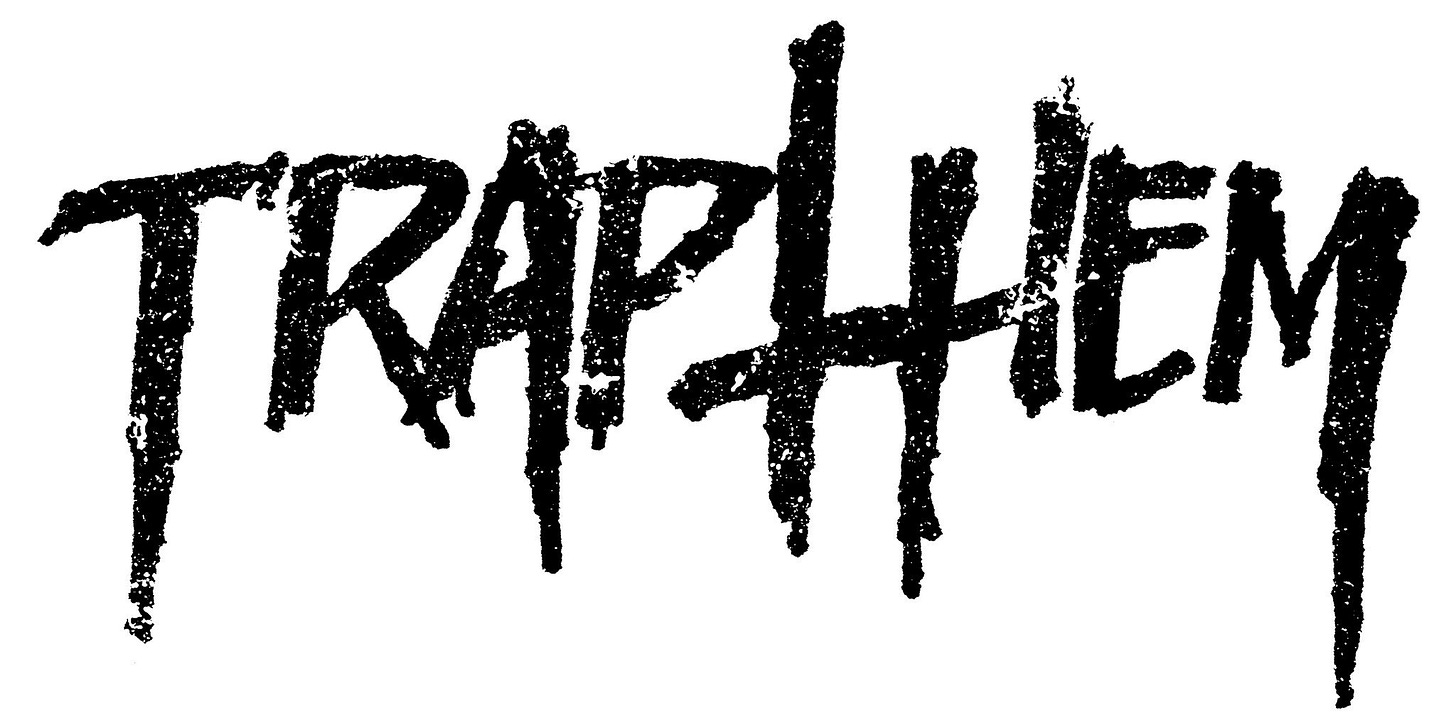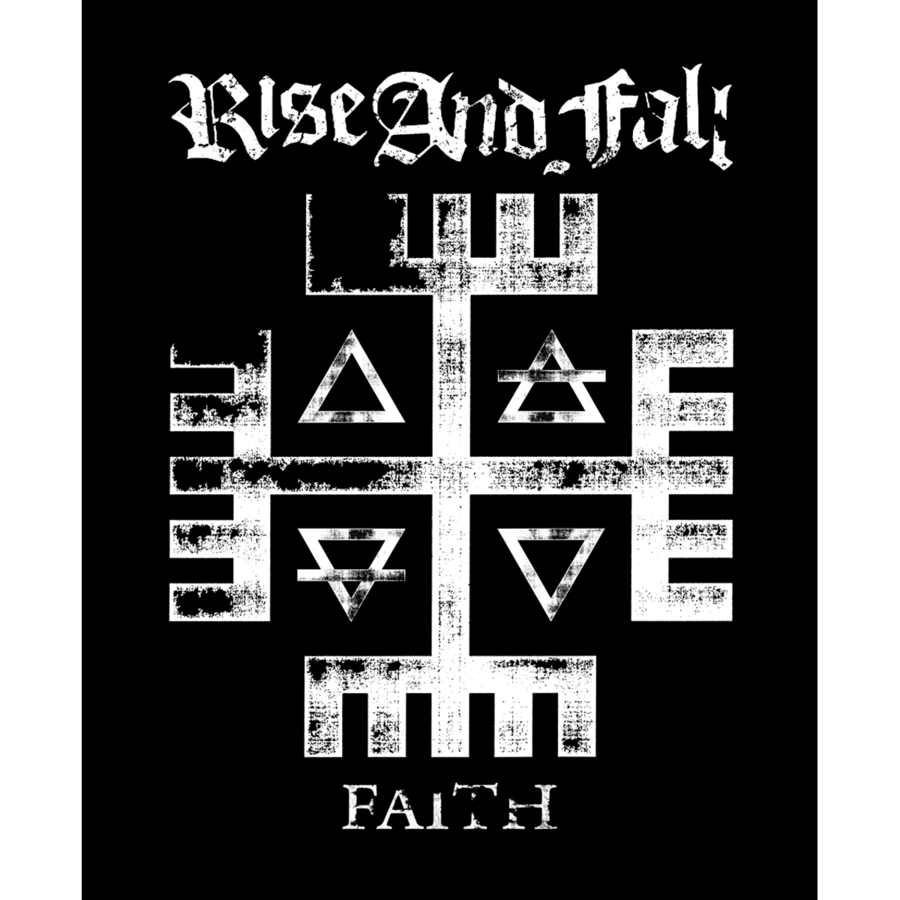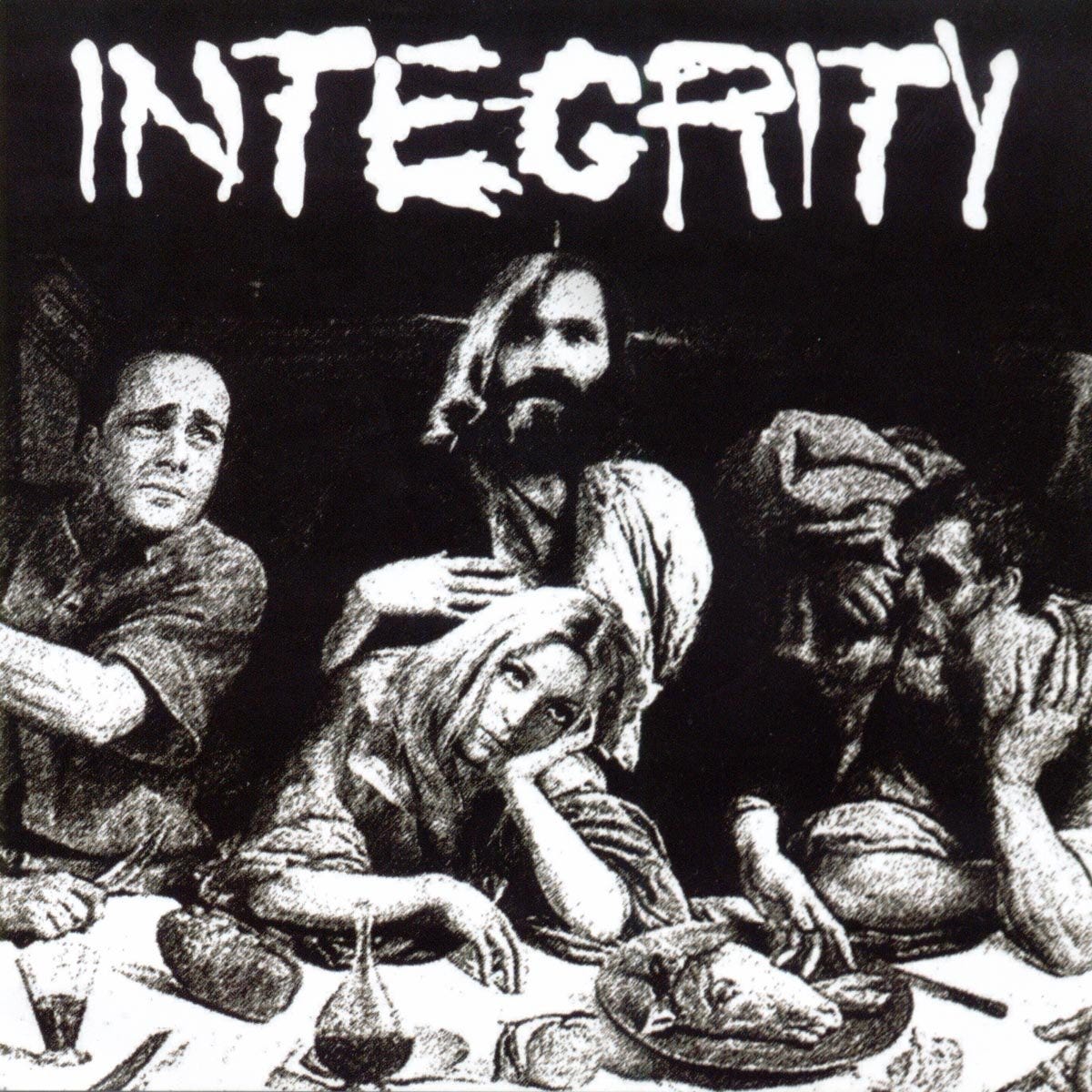In 2006, I was 20 years old, an impressionable college sophomore sharing a single dorm room with my two friends. That year marked the height of my involvement in hardcore. I was in a band; I attended shows. I listened to most new releases, and some of them really grabbed me: Pulling Teeth’s Vicious Skin, Weekend Nachos’s Torture, Ceremony’s Violence Violence, and Fucked Up’s Hidden World, to name a few.
And something else was in the air. 2006 saw the release of Richard Dawkins’s The God Delusion and Sam Harris’s Letter to a Christian Nation. Christopher Hitchens’s God is Not Great soon followed. It’s hard to overstate the impact of these books. Normal people bought and read them. For a year or so, atheism was in vogue. It was a strange time, and in retrospect, it was also a fleeting time. When Bill Maher’s documentary, Religulous, hit theaters in 2008, it felt late to the party.
That two seemingly separate worlds, hardcore and pop theology, overlapped was not lost on me. I ate it up, man! I’m telling you, I was all in. I joined a campus group called Atheists, Agnostics, and Freethinkers. I wore t-shirts with upside-down crosses on them. I badmouthed God and Jesus and the disciples, and I liked it. I was a brat! But then so is every 20-year-old.
But that’s not the point of today’s entry. Today, I’d like to talk about the brief window in time when seemingly every hardcore band took up the cause of atheism. I’m going to dig up some of the relics of that era and try to figure out what it all meant, if anything. This is Hardcore’s Left Turn.
Baltimore’s Pulling Teeth did a fantastic job metabolizing heavy hardcore, bitter and hateful vocals, colorful tattoo art, and atheism. Their 10-inch from 2006, Vicious Skin, was a big deal. Two songs in particular, “Never Wrong” and “Heretic,” stood out as hits. “Never Wrong” is great, but I’m going to talk about “Heretic,” a track that really encapsulates the era.
“Heretic” is musically exceptional. Lyrically, it’s also a cut above. A lesser vocalist might’ve been content to yell “fuck God” over and over, but on “Heretic,” singer Dom Romeo explores how God/Jesus–and by extension, Christianity–has failed civilization.
I defy you, you’ll never have control
I deny you and your soul-controlling role
Pulling Teeth carried this message over to their merch. One of their most popular shirts, pictured above, says GOD FREE YOUTH in varsity font. The front features a detailed illustration of priests possessed by demons. Confrontation was the point, although I always felt odd wearing mine, fearing somebody would misread or misinterpret it as “God Frees Youth.” And I could not abide that.
Like Pulling Teeth, Weekend Nachos stuck an upside-down cross in their logo and made hateful songs about God, Christianity, Christians, etc.. Their most popular shirt, pictured above, took aim at Evangelicals. The Christian Right was everywhere in 2006, upending local and national politics, and specifically working to dismantle women’s health. They continue to be a sore on America’s festering ass. They deserve scorn, and for that reason, I still wear this shirt.
Ceremony joined the conversation toward the end of the band’s 2006 album, Violence Violence. Singer Ross Farrar sings:
Gather the pure souls, turn the water into wine
Build a roof of stones with holy hands
Spit your venom
And if that wasn’t clear enough, the band elucidated its position a year later on “He-God-Has Favored Our Undertakings.”
I don’t kneel in worship, I don’t believe in a ghost
I don’t take kindly to judgment, death follows me underground
People fear death/the unknown. I know I do. Religions offer elegant solutions to the age-old question of what happens after we die. We’re sent to heaven, we’re reincarnated. Unfortunately, these solutions don’t bear scrutiny. Ceremony proposes an alternative. You die, your family buries you, and you remain there until the worms eat through the casket. “Death follows me underground,” Ross sings. I agree.
Remember Cursed? Of course you do. In 2006, you couldn’t spit at a show and not hit a Cursed shirt. Chris Colohan and Co.’s second album, II (Goodfellow, 2005) has an image of Baphomet on the cover. I get why bands use Satanic imagery–it’s visually potent stuff–but Satan and atheism don’t really jive. Since Cursed was all about questioning institutions (the church, the military), the image works to an extent. And lyrically, I appreciate the nuance Cursed brought to the table.
In 2006, you had to have an upside-down cross somewhere in your logo. It was an unspoken rule. Boston’s Trap Them understood this. Here’s their logo.
I’d be remiss if I didn’t mention Rise and Fall from Belgium. Their second album, 2005’s Into Oblivion, was huge here in the states. The title track asks:
So at the end of your days / Where will you go
When your kingdom's gone
Worms cover your throne when the lights go out
And the clock strikes twelve
It seemed like every band needed to weigh in on the question of an afterlife, and in 2006, the bands I loved all said, “Nope, no heaven.” I appreciated that.
So what brought about this trend in hardcore? Atheism/skepticism was there from the start (see: Minor Threat’s “Filler,” Poison Idea’s Pick Your King), but I think bands from 2006 were reacting more to the rise of Christian hardcore/metalcore in the late 1990s/early ‘00s. This was the height of Solid State records. Bands like Zao, Underoath, Norma Jean, and Stretch Arm Strong had substantial followings. And that’s fine. I like some of those bands, but the bands that made a point to reject religion were the ones that really spoke to me.
Furthermore, bands like Pulling Teeth, Weekend Nachos, and Ceremony ditched the overt metalcore influence of Cave In and Botch and channeled Integrity/Minor Threat/Crossed Out/whatever else instead. As a fan of fast hardcore, that was cool with me.
By 2010, the trend had more or less run its course. Mysterious Guy Hardcore rose to prominence, and though some of those bands (Raw Nerve, Hoax) traded in skepticism, their lyrics tended to paint broader pictures of emptiness, destitution, depression, and so on. Good stuff, but a noticeable shift nonetheless. And as the 2010s continued on, bands moved in all sorts of directions, notably toward a more ‘90s aesthetic. That’s a subject for another time. For now, let’s take a moment to celebrate that glorious era in hardcore when bands rejected religion just as culture at large was doing the same.
